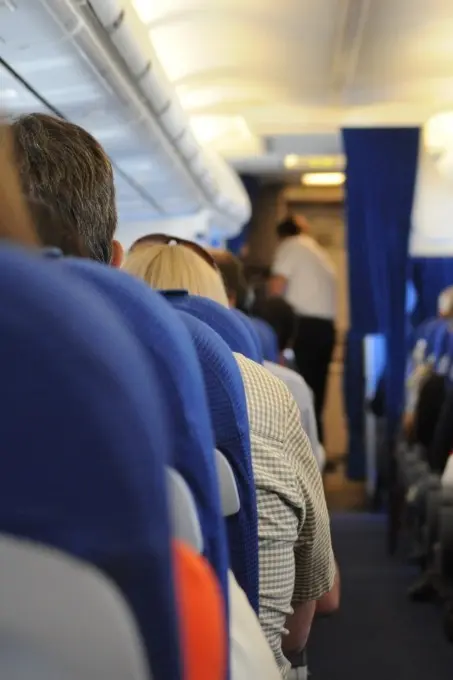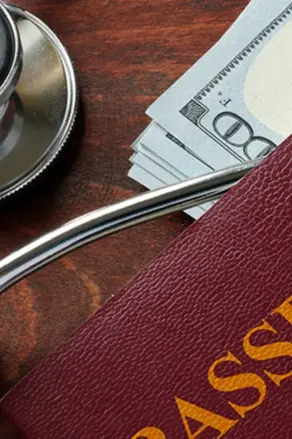Travel insurance, Travel Assistance, International Patient Management, Healthcare Digital Transformation, Healthcare Quality and Accrediation


When you ask any employee in insurance or assistance companies: What is your long-lasting and continuous battle in your job, the answer is ready: cost control.
This could be more a nightmare when you are working internationally!! Then you have to face the culture diversity, different systems everywhere and overall no systems at all in many countries.
Many companies are attracting those people who have the long and extensive experience in more areas of the world. They are really precious. I love those people.
Now comes the question; Are those experts able to do the needed changes and achieve a real saving?!
I have met many of them over the last decade during my current responsibility. They doesn’t lack the experience and understanding but are these enough to act?
Unfortunately the answer is No !!
When you come to the practical application of your knowledge and experience you will always face many obstacles :
Your national regulations which are not suitable to apply internationally in another country.
The other country local regulations and systems – if any – which your experience can’t all the time correlate without continuous update on regular basis or if you are lucky to have a local correspondent who acts like your local eyes and supply you with the new tricks discovered by local providers.
Overall, the governance in your company which could be the real challenge if your company is a huge one or if you are working in a subsidiary away from the head quarter which needs another episode of translating your ideas and convincing different people in board !!I know real friend who took seven years to convince other people in charge about his vision !! I don’t know if this gives you a positive or negative energy 🙂 but to complete the story this ends with more than 72% less in claim ratio and 40% total money saving without affecting the quality of service. It is really wow.
The last obstacle is the “safe or comfort zone”. Many senior employees have always this internal conversation in their minds: if everyone is happy with what is going on with just a fine touch from my side, why I have to take the risk which can threaten my job?!!
All of us can understand these previous challenges but how can you expect a different output when you always have the same inputs?!!!
The famous saying “When in Rome, do as the Romans do” is somehow true. You have to face the fraud and control the cost with the same language and mind of the locals.
When you have the knowledge and experience, What You need is to hold a brave heart and take a brave decisions to achieve miracles. You have to be flexible enough to understand that “We always do it this way” is the most expensive word in business.


One of the daily conditions that require the medical travel assistance companies and insurance to get a decision and take the responsibility about; Is their patient, who has been treated in another country, fit to fly?
To be realistic, fitness to fly at the end is the sole decision of airline according to their policy which may vary from one to another.
As a physician, your decision will depend mainly on: What is the clinical data you have and What is the past history the patient had released. You can’t say the patient is fit to fly but the patient according to the available data and medical record has nothing risky for him to fly.
If asked to comment on fitness to fly, avoid stating a patient is “fit to fly” as the latter could be perceived as a guarantee of a patient’s fitness.
What I have to consider?
you must be honest and trustworthy when writing reports, and when completing or signing forms, reports and other documents. You must make sure that any documents you write or sign are not false or misleading… you must take reasonable steps to check the information is correct.
Fitness to fly can be an emotive area. Patients may have special reasons for wanting to travel and doctors may feel pressure to complete forms and declarations of fitness to fly. However, it is important that GPs act in their patients’ best interests and only make statements that are truthful and honest and not misleading.
When Fit to Fly is required?
Acute medical condition.
Recent hospitalization.
Recent accident or recent operation
Progressive and/or unstable medical condition
Inability to sit up in seat (stretcher transport required)
Oxygen or other medical equipment required on board
Travel is for medical reasons (e.g. for special treatment abroad)
Passenger requires a companion to provide medical support
Contraindications to air travel
Infants less than 48 h old.
Women after the 36th week of pregnancy (32nd week for multiple pregnancies).
Those suffering from:
Angina pectoris or chest pain at rest;
Any active communicable disease;
Decompression sickness after diving;
Increased intracranial pressure due to hemorrhage, trauma or infection;
Infections of the sinuses or of the ear and nose, particularly if the Eustachian tube is blocked;
Recent myocardial infarction and stroke (elapsed time since the event depending on severity of illness and duration of travel);
Recent surgery or injury where trapped air or gas may be present, especially
Abdominal trauma and gastrointestinal surgery, craniofacial and ocular injuries, brain operations, and eye operations involving penetration of the eyeball;
Severe chronic respiratory disease, breathlessness at rest, or unresolved pneumothorax;
Sickle-cell anemia;
Psychotic illness, except when fully controlled.
The above list is not comprehensive, and fitness for travel should be decided on a case-by-case basis.


Travel insurance is a relatively new type of insurance, defined as a kind of insurance covering financial, medical or other related losses, incurred while traveling. Insurance policies cover these losses when traveling within a policy holder’s own country or in a foreign country.
The idea of travel insurance was first implemented in the United States more than 100 years ago.
The first insurance company to provide travel insurance was established on 1 April 1864 by James Batterson. Clients were provided with travel insurance services covering death and injury while traveling by train or steamship. Since then, travel insurance has become a significant sector of the insurance market, providing cover of all types of risk and consisting of millions of insurance policies and collected premiums of more than $1 billion.
Since then, the travel insurance is one of the most sectors vulnerable to fraud all over the world.
Although paying a bill for a pregnancy test when the patient’s a man. Or a bill for a penile implant when the patient is a woman is a obviously ironic billing mistakes (if the policy covers such procedures), but It can range from exaggerating genuine claims or injuries to entirely fictitious claims and accidents. Insurance fraud mostly carried out by third parties!
A 2013 survey on behalf of Gocompare.com saw 7% of 18-to-34-year-old UK holidaymakers admit to having inflated a claim on their travel insurance policy, or to having made up the claim in its entirety.
Of all the age groups polled, younger travellers were the ones most likely to try to swindle their insurer into handing over money they weren’t entitled to, whilst over 55s were most likely to play by the rules.
Many factors were discovered to be the root reasons for such fraud:
Economic climate. Some people are fund hunters. They buy trips putting into consideration to restore their money either by reporting a complaint against the hotel of stay or by arranging with local medical facility or a doctor to use their travel insurance to make a false claims and share the money. This is usually suspected when you examine a claims from a repeater tourist or a resident one who travel frequently.
Most of fraudsters personnel think that crossing borders made them save from fraud investigation. In the other hand, many of travel insurance companies pay for claimant because they think that the investigations may cost them more. But when you consider claims ratio/medical provider you will realize the importance of RED FLAGGING that facility.
Social attitude and the insureds’ feelings that travel insurance is expensive.
The cost of operation of medical facilities in touristic areas push many to either commits fraud or doing medical abuse. The using of local correspondents who have the local experience are always a better solution for revealing insiders.
Involvement of non-medical personnel in marketing the service against commission. This includes but not limited to tour leaders, receptionist in hotels, taxi drivers ….etc
Frequent holiday fraud and scams which in return push some people to find another way to compensate their loss.
Some people felt that travel insurers hardly ever paid out for claims. The main reasons why customers have their travel claims turned down are either because they didn’t have the appropriate cover in the first place or because they failed to follow their insurer’s guidelines at the time of the event.


Overutilization of services is usually some sort of main increase of health and travel insurance expenses. This means a provider performs and bills for a service that is not medically necessary.
Sometimes the provider believes in good faith that the service is in fact necessary. So he is not engage in fraud/ health care abuse, but how to detect if it the truth? You are in a grey area, where to decide it is a fraud or not is difficult as the distinction lies in his mind.
Let us numerate certain patterns of activity can provide compelling evidence of fraudulent motives.
A physician provides a certain treatment only to those patients whose insurance covers it; he does not provide the treatment to other patients with the same diagnosis whose insurance does not cover it. You may as a TPA company notice that when you handle cases to multiple insurance companies.
A physician regularly has certain tests conducted on his patients, but he does not review the results.
A physician is unable to demonstrate an understanding of the purpose of tests that he regularly has conducted. This could be simply detected when your medical platform contacted him prefer by phone.
A physician always bills the maximum number of services covered by a patient’s insurance.
It should also be noted that in some cases, if a provider sincerely believes unnecessary medical services are necessary, he may be guilty of medical incompetence or malpractice. Such cases should be reported to the appropriate licensing authorities.


We have discussed in previous article about handling the International patient bad debt and we focused on ordinary tourists who came for a regular trip. Then they have faced an emergency situation and they discovered that they don’t hold a valid travel policy OR their policy doesn’t cover this specific situation.
Now, we are discussing self-payers who plan, decide and choose a health tourism trip. This type of patient came after they have spent some time comparing different destination, offers, testimonials, itemized medical and non-medical packages. Then they make their decision.
Simply, they came by their free will to you because of your BRAND either as a hospital, a country or both or through a recommendation of a medical tourism facilitator.
Now, you have the patient and most probably one or more of his family. You start your medical treatment after you finalized financial issues with him. Most hospitals got in cash all payment before starting the treatment for health tourists.
Then, unexpected scenario happened. For a malpractice of one of your medical team, it will go directly through your professional indemnity policy although this will take a lot of time.
However, the most unpleasant situation is the complications. Medically speaking, any surgery has a liability of complications starting from an allergy to anesthesia up to death.
This ends with a patient spending weeks or months in your ICU or goes for another surgery to correct something …etc. Most of the time neither the patient or the family has been prepared for this extra cost. Or they have money in their homeland but can’t transfer it due to many reasons !!
Although doctors know that, international patient and financial departments tend to ignore that when they quote the cost to the patient to be competitive.
So, what hospitals can do in these circumstances?
A good educational awareness has to be conducted to the patient and his relatives including the liability of complications so they have to be prepared.
Very few insurance companies at the moment provide a product for complications of elective treatment for health tourism programs. Unfortunately, this is not available for all countries. You have to have an agreement with one of them if available in your country.
Patient has to provide a travel insurance policy to cover some of the risks he /she could be exposed to e.g. traffic accident, mortal remains repatriation ….etc.
Some hospitals with high volume of health tourism files tend to add a margin in their quote as a premium for a self-insurance to cover complications if happened.
Some countries tailored a special credit cards through banks for patients planning to go abroad for treatment to provide an installment solution for the cost.
Yes, complications are rare but it happen and you have to be ready neither to lose money or to lose your brand.
My article is also has an open end for experts in health tourism to comment with their experience in different countries.